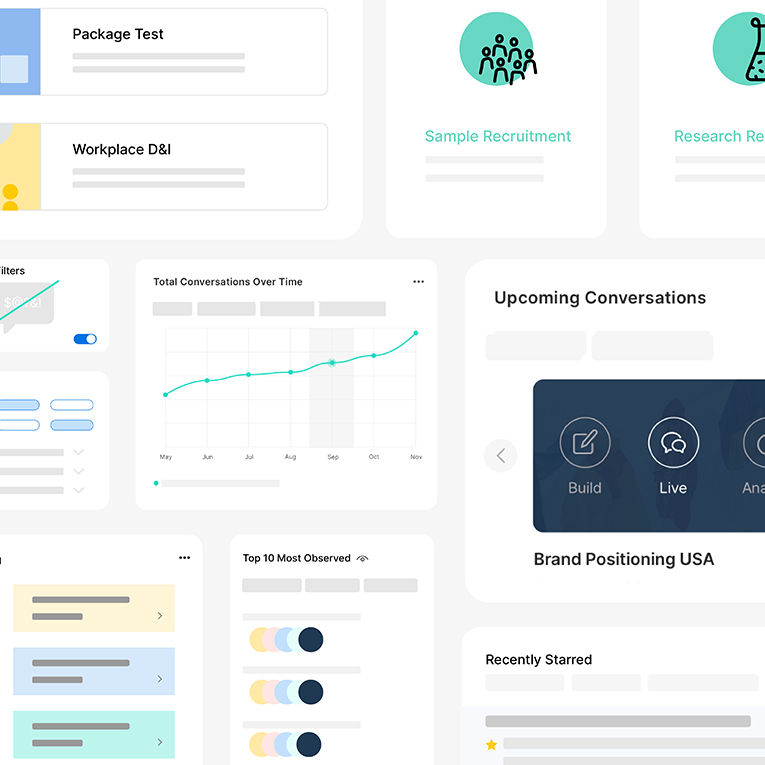.webp)
Trends
How to Calculate Your Sample Size Using a Sample Size Formula

.png)

.png)
Read More

.png)
.png)
.png)
Maria Noesi
November 25, 2021
Remesher
.webp)
Trends
How to Calculate Your Sample Size Using a Sample Size Formula

.png)

.png)
Read More

.png)
.png)
.png)
November 25, 2021
Remesher
.webp)
Trends
How to Calculate Your Sample Size Using a Sample Size Formula

.png)

.png)
Read More

.png)
.png)
.png)
November 25, 2021
Remesher
.webp)
Trends
How to Calculate Your Sample Size Using a Sample Size Formula

.png)

.png)
Read More

.png)
.png)
.png)
November 25, 2021
Remesher
.webp)
Trends
How to Calculate Your Sample Size Using a Sample Size Formula

.png)

.png)
Read More

.png)
.png)
.png)
November 25, 2021
Remesher
.webp)
Trends
How to Calculate Your Sample Size Using a Sample Size Formula

.png)

.png)
Read More

.png)
.png)
.png)
November 25, 2021
Remesher
11 Most Innovative Sustainable Packaging Ideas
Sustainable packaging is the development and use of packaging that’s recyclable, reusable, and made from rapidly renewable resources or materials. This practice reduces the environmental impact and ecological footprint of consumer product waste.

Sustainable packaging is the development and use of packaging that’s recyclable, reusable, and made from rapidly renewable resources or materials. This practice reduces the environmental impact and ecological footprint of consumer product waste.

There’s been a bounty out on packaging ever since Keep America Beautiful released its notorious 1971 “Crying Indian” PSA. The advertisement follows Iron Eyes Cody, an actor famous for portraying Native Americans, as he paddles through a river of post-consumer waste.
At the end of the ad, a single tear falls down his face while the narrator admonishes the audience: “Some people have a deep, abiding respect for the natural beauty that was once this country. And some people don’t.”
While the advertisement got several things wrong, its emphasis on packaging was as appropriate in 1971 as it is today. According to the most recent data from the U.S. Environmental Protection Agency, packaging waste accounted for almost 30% of our garbage in 2015.
Luckily, things are starting to change. Consensus has shifted to taking a deeper look at corporate responsibility - rather than anthropogenic responsibility - for climate change.
Fortunately for brands, sustainability sells.
According to a recent survey from Accenture, more than half of consumers are willing to pay a premium for reusable and recyclable products. Meeting consumer demand for sustainable products and packaging is an urgent matter, both for consumers and for the environment.

What is Sustainable Packaging?
Sustainable packaging is more than just using eco-friendly boxes and recycling. It encompasses the entire life cycle of a package, from sourcing materials to disposing of them.
Sustainability is about closing the loop and creating a circular economy - that is, one where materials aren’t used once and thrown away, but renewed and repurposed. The Sustainable Packaging Coalition outlines several criteria to consider when making sustainable packaging. Evaluate whether it:
- Is beneficial, safe, and healthy for individuals and communities throughout its life cycle
- Meets market criteria for cost and performance
- Is sourced, manufactured, transported, and recycled using renewable energy
- Optimizes use of renewable and recycled materials
- Is manufactured using clean production technologies and best practices
- Optimizes materials and energy through design
- Is recoverable and usable in closed loop (reusable) cycles

11 Brands With Great Sustainable Packaging

Thinning Down Plastic Bottles (Lush)
Lush takes an unpackaged approach whenever possible: 35% of their products come totally package-free or, as they like to call it, “naked.” Innovative solid products like shampoo and conditioner bars drastically cut down waste, and since 2005, Lush has saved 124 million plastic bottles from ever being produced through unpackaged alternatives alone.

For things that must come packaged, Lush uses recycled and recyclable materials. All of their plastic packaging is made from 100% post-consumer recycled material. They’ve even taken it a step further by finding local suppliers to handle recycling and manufacturing, minimizing the environmental impacts of shipping.
But it doesn’t end there: Lush continuously looks for ways to reduce its environmental impact.
In 2012, the company made their clear plastic bottles 10% thinner, saving thousands of pounds of plastic each year. And with creative brand loyalty programs that encourage customers to accumulate and bring in empty packages in exchange for free face masks, Lush takes a fully loaded approach to closing the loop on packaging.

Mushroom-Based Packaging for Consumer Electronics (Dell)
All that polystyrene (or resin) protecting your electronics is not biodegradable and rarely gets recycled. Fortunately, Dell is pushing industry sustainability standards forward by adopting plant-based alternatives, including a mushroom-based polystyrene substitute.

The packaging material innovation comes from Evocative Design, a New York biomaterials company that started as a university project by founders Eben Bayer and Gavin McIntyre.
But how does it work?
Raw waste products like cotton hulls and old corn husks are mixed with mycelium, the root structure of mushrooms, and placed in a mold. The mycelium feeds on the agricultural waste, which grows into the shape of the mold. The result is a mushroom-soft material that’s better than polystyrene in every imaginable way - it’s more flexible, sturdier, and completely biodegradable.

Eliminating Six-Pack Rings (Carlsberg)
Plastic six-pack rings have been the subject of environmentalist efforts since 1987, when the Associated Press reported that one million seabirds and 100,000 marine mammals were killed by six-pack rings yearly. Since then, most beverage companies have made their rings degradable - but there’s still opportunity for innovation.

The problem with degradable packaging is that when rings break down, it produces microplastics that are easily digested by marine animals.
Carlsberg - a Danish beer company - approached the issue by eliminating the rings altogether. The company developed a special glue to hold their six-packs together, all while having zero impact on the recyclability of the cans. The company’s “Snap Pack” reduces plastic use by 76%, saving 1,200 tons of plastic every year.

Repurposing Ocean Pollution (method)
Cleaning product company method has also tackled the ocean plastic problem, but from the standpoint of extraction.
Already ubiquitous for using 100% post-consumer recycled materials for their conventional soap bottles, the team at method collaborated with recycling partner Envision Plastics to make the world’s first bottles made of plastic waste from the ocean. Specifically, from polluted beaches in Hawaii.

While the bottle’s impact is tangible, co-founder Adam Lowry acknowledges that the real value of method’s innovation in sustainable packaging lies in education.
Making plastic bottles from ocean plastic probably isn’t the solution to our ocean plastic problem, but it’s a movement in the right direction - one that shows that there are ways to repurpose the plastics that are already on our planet.

Reducing Cardboard and Tissue Paper Use (Puma)
Between cardboard shoe boxes and excessive amounts of tissue paper, footwear packaging’s waste problem is serious. That’s why Puma collaborated with San Francisco designer Yves Béhar for a lesson in sustainable packaging design: the Clever Little Bag.
.png)
The Clever Little Bag uses 65% less cardboard than traditional cardboard shoe boxes by replacing the material with reusable bags and flat pack cardboard trays that provide structure. On the supply chain side, it reduces water, energy, and diesel consumption by more than 60% annually.
Made from recyclable plastic, the bag is lighter and smaller than standard alternatives. This reusable packaging solution completely eliminates the need for a shopping bag long after you’ve purchased the shoes.
The cherry on top? No more pesky tissue paper.

BYOB Water Stations (Coca-Cola)
Coca-Cola’s newest packaging innovation thinks outside the bottle by asking consumers to bring their own bottles to DASANI PureFill stations. It’s the beverage company’s latest effort toward removing 1 billion polyethylene terephthalate-based (PET) plastic bottles from its supply chain.

The DASANI Purefill stations are paired with a mobile app that allows users to locate nearby machines, track their hydration, and pay for premium refills. Filling up your personal bottle with filtered water is free - but for a small fee, carbonation and flavor options are available. Following a successful 2017 pilot at the Georgia Institute of Technology, Coke will roll out 100 more units by the end of 2019.

Plantable Packaging (Pangea Organics)
Pangea Organics is an environmentally conscious personal care brand that takes sustainability to heart. All of the brand’s packaging uses plant-based inks, is 100% recyclable, and manufactured at a factory powered by wind energy.
.png)
One of their most innovative approaches to eco-friendly packaging? The first ever 100% compostable and plantable product packaging, manufactured with zero waste and made from 100% post-consumer paper.
The real stars of this sustainable packaging solution are the seeds, which are safely embedded into the packaging. Once consumers are done with the product, all they need to do is soak the fiber case in water, plant in shallow soil, and wait for the plant to sprout.

Drinkable Garment Bags (TAMGA Designs)
TAMGA Designs isn’t your average fashion company. Instead, the brand has made sustainable fabrics and low-impact dyes as important as sustainable shipping and packaging.
TAGMA Designs’ garment bags are made from cassava starch (which comes from a root vegetable) and break down naturally over the course of a couple of months. But if you’re thirsty and in a hurry, you can dissolve the bag instantly in a glass of hot water and drink it.
In addition to the plant-based packaging, TAGMA Designs offers carbon neutral shipping by systematically tracking emissions from fulfilling orders and purchasing offsets to reduce their carbon footprint.

Direct-to-Consumer Detergent Pods (Dropps)
The original laundry pod, Dropps lies at the coveted intersection of convenience, cost-efficiency, and sustainability.
The detergent itself is plant-based and comes packaged in easily recycled cardboard boxes that double as shipping boxes, cutting out single-use plastic pouches altogether. But the gentle-yet-effective detergent brand’s real packaging innovation is rooted in its distribution channel: direct-to-consumer.
.png)
Selling directly to customers allowed Dropps to quickly pick up on trends in consumer behavior. They found that customers often bought multiple products and created a bundle box that allowed customers to customize their orders without any additional packaging.

Turning Trash Into Treasure (Fitzroy)
When Dutch beaches became inundated with paper wrappers from plastic Coca-Cola bottles, the team at Fitzroy had an idea - one that would revamp the classic pairing between rum and Coke in a clean, eco-conscious way. They repurposed the waste labels into chic marbled bottle caps for their Premium Navy Rum to bring a whole new meaning to drinking responsibly.
.png)
Each bottle cap is unique and irreplicable, while the flasks themselves are made from recycled glass. With packaging this pretty, consumers are inspired to hold onto the glass bottles for reuse.
Fitzroy encourages consumers to refill bottles with water for the inevitable next stage of the “waste to wasted” story: the hangover.

Refillable Makeup (Kjaer Weis)
Whether a customer hit the bottom of their lipstick tube, or is just looking for a new color for the season, Kjaer Weis has a sustainable packaging solution.
.png)
The luxury beauty brand’s intelligent makeup system means customers don’t need to create packaging waste when a lipstick or eyeshadow has been used up. Instead, customers can replace the makeup cartridge with a refill carton.
Refills come in recyclable packaging and are available for every Kjaer Weis product: lipsticks, glosses, foundations, mascaras, and more. And because the cartridges don’t use unnecessary packaging, they’re inexpensive.

Next Steps for Sustainable Packaging
Sustainability isn’t a buzzword or fad - it’s the present and future of the packaging industry. Environmentally friendly packaging options are everywhere, and companies big and small are signing on by improving their packaging design and committing to cut waste and go green. So, what will your team decide?
Want to keep up with the latest trends in the world of consumer and packaged goods?
Stay up-to date.
Stay ahead of the curve. Get it all. Or get what suits you. Our 101 material is great if you’re used to working with an agency. Are you a seasoned pro? Sign up to receive just our advanced materials.






